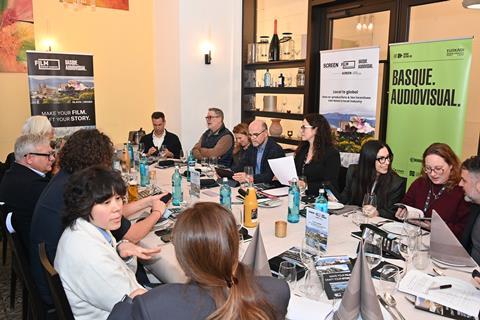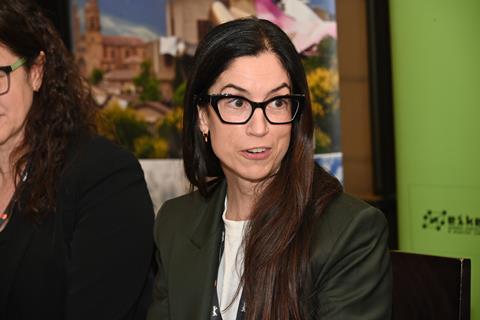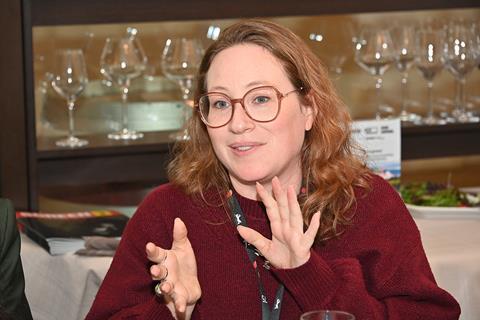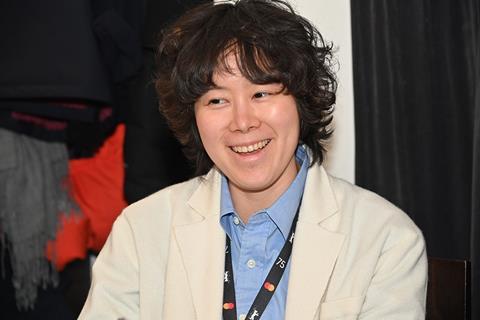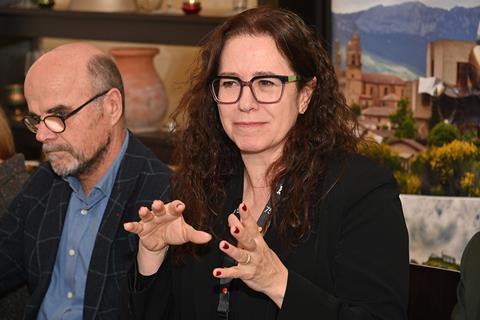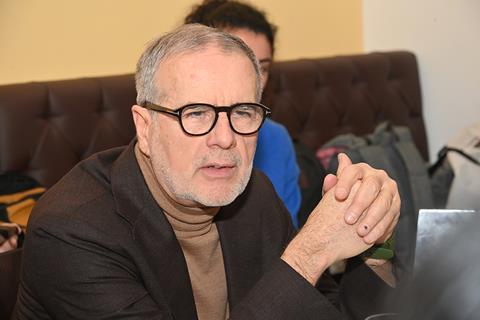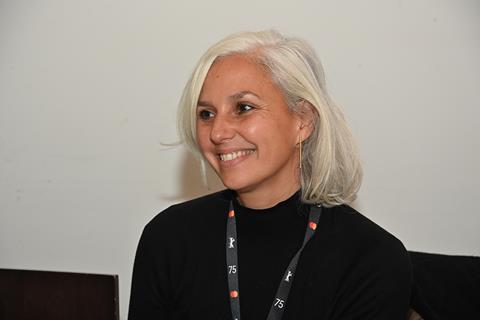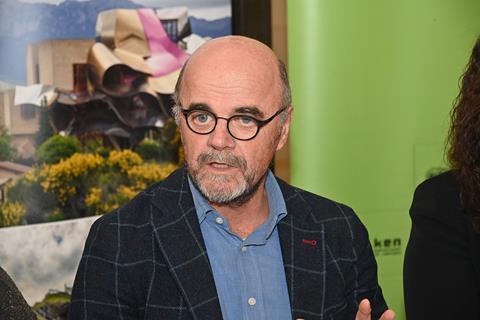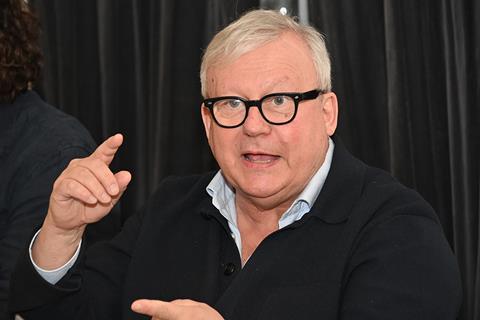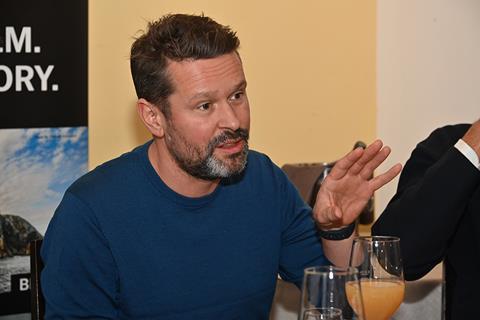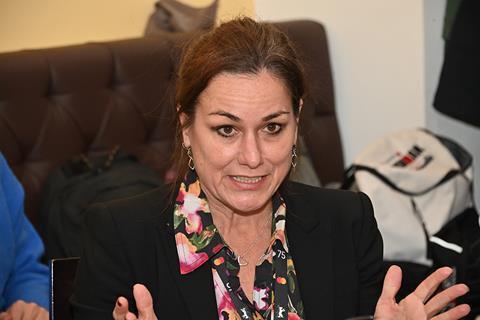Strategies for nurturing a local film industry were debated at a round table hosted by Screen International in partnership with Film Basque Country and Basque Audiovisual at the Berlinale on Friday, February 14. The value of incentives to kickstart local industries and opportunities to co-produce were addressed at the invitation-only session, which brought together producers, executives and experts from Europe and the US.
Ruth Aristondo, head of Film Basque Country, the organisation that works to position the Basque Country as a prime destination for audiovisual productions, revealed information about the region’s growing industry. Aristondo said the sector is being boosted by the impact of up to 60% in tax deductions for filmmakers, a diversity of locations, wide-ranging institutional support and skilled local production companies with credits that include Berlin 2023 Competition title 20,000 Species Of Bees.
“Film Basque Country is an initiative that’s been long in the making to attract audiovisual productions. Our goal is to make things easier to those interested in exploring our region and working there,” said Aristondo. “The impact of the incentive is noticeable, and we are putting resources into helping the workflow.”
There are now plans to build more studios, invest in training schemes and foster local talent and crews.
Long-term relationships
One company enticed to the region is Buendia Estudios, one of Spain’s most active producers of fiction and non-fiction film, TV and entertainment, filming there for the Movistar Plus+ miniseries Offworld and AtresPlayer Premium’s Cardo. “We are trying to build a long-term relationship with the Basque Country because of its institutional support and industry. They are very reliable and there’s a close rapport between the institutions and the professionals,” said Buendia Estudios CEO Ignacio Corrales.
Tax incentives and the role they can, or should, play in helping an industry to thrive sparked lively discussions. Dutch producer Koji Nelissen from Keplerfilm and Tomas Eskilsson from Sweden’s Film i Väst both warned of issues with what they called Europe’s tax incentive “race”. Eskilsson, producer of titles including Halfdan Ullmann Tondel’s Armand, said “an incentive should [only] be a kickstart for an industry to grow”. In the long term, he believed it was best “to keep the balance with cultural funding, like a kind of gatekeeping for projects, even if, as a producer, I’m not always in agreement with their decisions”.
Eskilsson said it was about finding the balance between culture and finance. “You need to think, ‘What is most important — domestic or incoming productions?’ Incoming productions will create growth, for sure. The problem is that everything has become a competition.”
“I guess I’m here because I’m the nasty guy that questions the use of incentives,” said Eskilsson, with a smile.
In the case of Spain, Leon Forde, CEO of global consulting firm Olsberg SPI, explained the findings of a study carried out in the country, analysing the economic impact of international production on the Spanish industry. “What we found is how much business the international incentive had brought, investment that otherwise might have gone elsewhere,” he said.
Forde underlined that a tax incentive “is only part of an ecosystem that has to be developed together, including the supply chain, studios”.
Film Basque Country’s Aristondo said this was front of mind for her organisation. “Finding the balance between what shoots we want to attract but also nurturing the local industry” is how she put it.
In his experience as a producer, Corrales had no doubt that, in the case of the Basque Country, the tax incentives are vital to being able to produce films on a bigger scale, with an international appeal. “We can now approach a huge market like the US Spanish-speaking audience,” he said. “Because of the tax incentives, an American [partner] is going to be possible. We are also developing our first series in English with the UK.”
The speakers were united in the belief that talent and locations are the most important elements of a region to potential partners. Meg Thomson, EVP worldwide content at US producer Globalgate Entertainment, said the goal was to make “local-language content and projects that are truly authentic to those places”. She added: “We are less about incentives and more [about] finding talent and building it up.”
The other round table participants were: Andrea Scarso, UK-based partner and investment director at fund management company IPR.VC Management; Denis Leroy, senior director of central scripted team and head of scripted formats at Banijay (France); Paul Thiltges, founder and managing director of Luxembourg’s Paul Thiltges Distribution; and Constanza Arena, executive director of Chilean talent agency La Luz Films & Talents. The international producers present were: Alex Lo of Cinema Inutile (US); Aleksandra Kostina of Bosonfilm (Ukraine); Gabriela Tocchio of Gullane (Brazil); Iris Cohen of Head Gear Films (UK); Augusto Matte of Maquina (Chile) and Deptford Film (UK); and Jonas Weydemann of Weydemann Bros (Germany).
In partnership with:






















